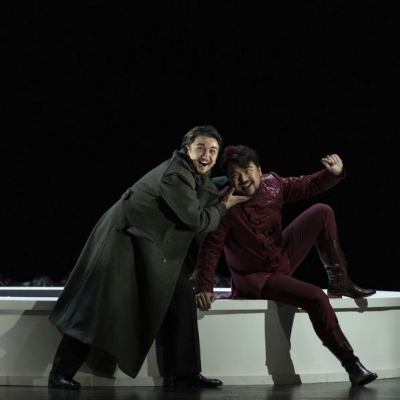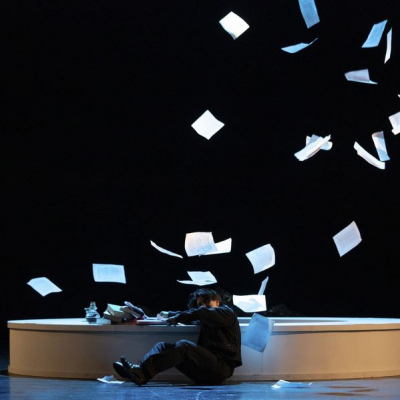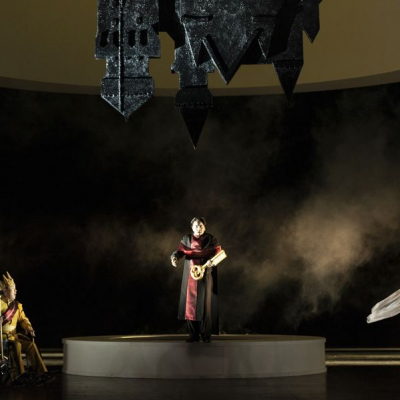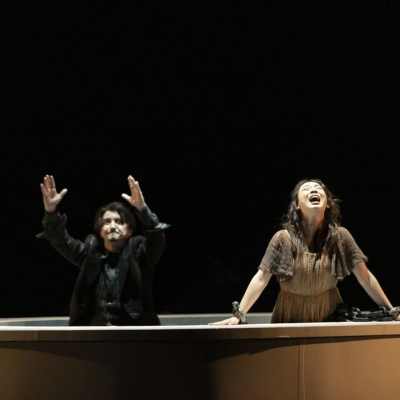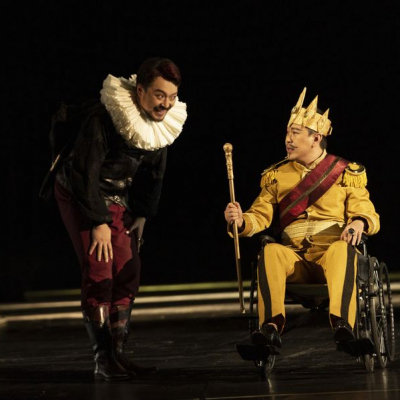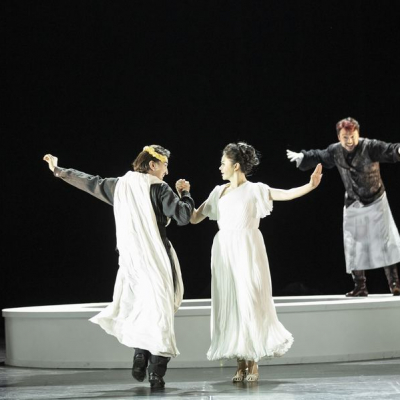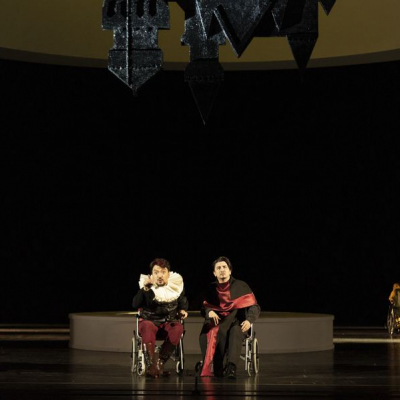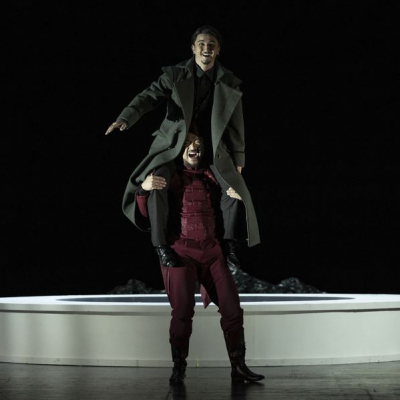The Tragedy of Faust
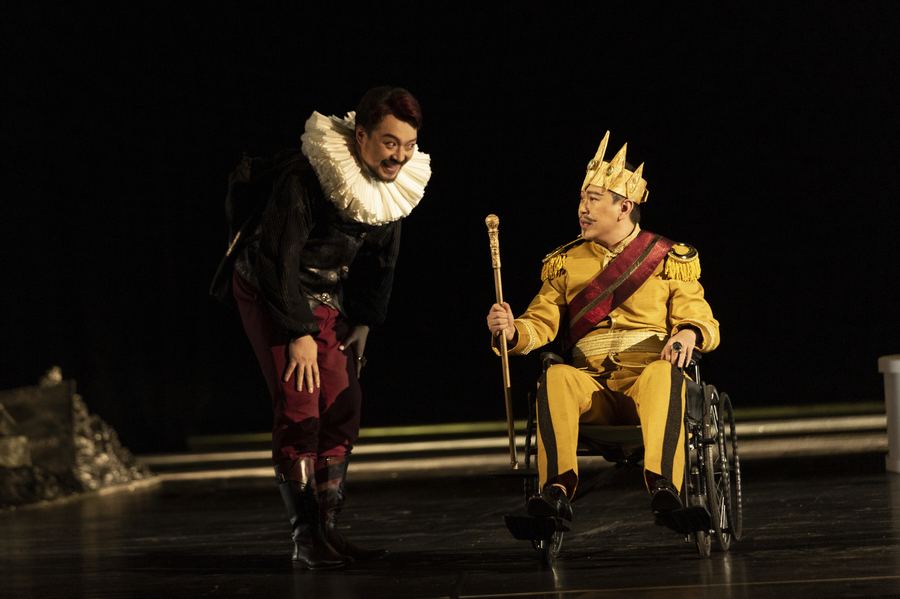
The Central Academy of Drama, Beijing, China
Director: Liu Libin
Performed in Chinese with Hungarian and English subtitles
2 hours, without breaks.
The five-act play The Tragedy of Faust, adapted from Goethe’s Faust. The text was written to show human being’s blindness for desire and introspectiveness from the failure of Faust’s intention to conquering the nature to the collapse of his political ideal; from the disillusion of Faust’s pursuing for classical aesthetics to the failure of his seeking for real love. Till at last, he felt despair in the hunger for knowledge, Faust’s insatiable desire drives him to experience the ups and downs of life with the help of Mephistopheles, the devil, leaving him only the pain of failure.
Selling one’s soul to satisfy his own desire is Faust’s tragedy, also human beings’ tragedy. If the glory civilization self-praised was built on the base of human being’s desire, then, our progress and development were nonsense which must be full of mental sufferings. Under the encouragement of Gretchen, Faust finally recognized the situation, and fought with the devil. Faust’s life course of constantly self-examination and exploration of the meaning and value of ‘human’ existence brings out the good in humanity, which poses the question: What should it really like to be ‘human’?
Director’s Notes
Faust was a poetic play written by German writer Goethe. In this works, Faust’s life showed the strenuous exploration of human nature under hard environment. Based on German folklore, the plots develop with the changes of Faust’s thoughts, the play tells the story of human beings who are trying their best to explore the meaning of life and social ideals. The dramatic poem perfectly combines realism with romanticism.
Faust always believes that one shall never stop pursuing.
Goethe deeply revealed the complex of two contradictory conflicts that were “positivity” and “kindness” with “negativity” and “badness”, and appraised for his precious spirit of on-going endeavor in overcoming barriers, exceeding himself and striving for the highest existence. “Faust’s dilemma” was human being’s dilemma, it was the common topic on “Soul” and “Body”, which was inescapable when people were pursuing for life’s value and meaning, it showed the dilemma between human instincts and moral code, or individual’s happiness and social responsibilities.
He finds the truth after once going astray, that one must not fall into the abyss of desire, nor surrender his soul to the devil. The production, The Tragedy of Faust, is an extract of five stages of Faust’s life from the numerous plots of the original text, and evaluates and expresses Faust’s tragic life in a serious and meaningful way. Thus, it will lead us to a question: in face of diversified, colorful material life, what shall we do to avoid losing ourselves? Continuous pursuit will lead to rebirth, while indulgence in desire will lose one’s soul without his/her knowing it and reduce him/her to an item in exchange for benefits. These questions to be thought and solved were put forward to Faust, also to followers at every moment. To seize life and freedom, catch the reality, kindness and beauty, every generation shall work hard for these. Never stop, for oneself and for next generation, and shout from the bottom of heart, “how beautiful you are, please stay for a while”, then fade away…
The scriptwriter exacted simply the crucial five life stages from the 12111-line original poetic play, and gave serious and meaningful comments to his tragic life. It means that the scriptwriter put a huge polygon mirror shown human life and nature before creators and audiences. Hereby, it provokes our thoughts on how to seize ourselves under present colorful and diverse material life? Our spirits will be stolen unconsciously and be regarded as materials for mutual interests if we cannot control our insatiable desire in continuous pursuing for being reborn!
We should avoid falling into desire’s ditches, keep from yielding our spirits to ghosts, we must master ourselves… it maybe the enlightenment the classic character Faust want to tell.
And this is how we think and what we want to express.
Actors
Faust : Yikesang Tayier
Mephistopheles : Xie Yuchuan
Emperor: Yu Hengwei
Helen: Chen Ning
Gretchen: Sun Jingfei
Stage designer: Sun Daqing
Costume designer: Chen Xiangqun
Choreographer: Hu Di
Liu Libin



